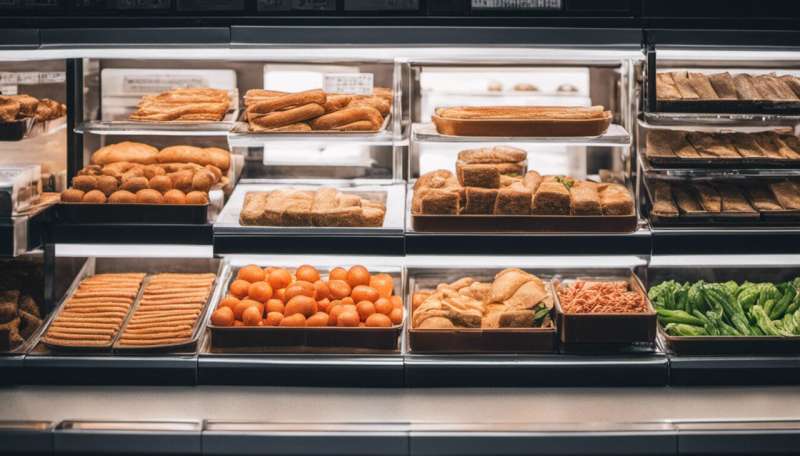How food shortages affect shopping habits and why people keep switching stores

Three-quarters of British shoppers are loyal to their usual supermarket, but the UK retail sector is no stranger to the complex and fluctuating needs of its customers.
In the last three years alone, shops have had to deal with Brexit, a pandemic and a cost of living crisis—all of which have influenced their customers’ behavior. More recently, large UK supermarket retailers have struggled to meet customer demand for fresh fruit and vegetables, causing shortages, which has led to the need to impose buying restrictions.
After some people sought alternatives to satisfy their food needs and wants during recent shortages, shop owners might wonder if this switching behavior will have a long-term effect on their customer’s loyalty. Will these shoppers switch back?
The concept of customer loyalty is a compelling part of any retailer’s strategy. It means better retention of customers and a reduction in marketing and management costs. But loyalty can be fragile, as shown by current evidence of customers switching to independent greengrocers and farm shops amid recent food shortages.
In reality, research shows that consumers are driven to meet their shopping goals and will pursue their intended purchases until they get what they want. No amount of existing loyalty can override the desire to complete a shopping goal, whether it’s buying a tomato or finding a turkey for Christmas dinner.
Fundamentally, loyalty depends on a customer’s perception of what is attractive to them in the moment, as well as what they expect to be available in the future. It’s no surprise then that independent greengrocers have been an attractive alternative during recent shortages, as news reports suggested they continued to carry stocks of in-demand items of fruit and veg.
Stick or switch
But if retailers are in danger of being “switched out” for an alternative at any time, what happens after the switch has been made? Certainly, the fear of permanent switching behavior is the stuff of nightmares for any retailer. But if people can’t satisfy their shopping needs and so seek alternatives by switching, how long could it be before they switch back—or start shopping at an entirely new place?
Switching behavior is complex, but research shows it generally happens along a spectrum:
- complete switching, where the temporary substitution becomes a permanent choice
- partial switching, which is a blend between the already existing choice and incorporating a new substitution
- continuous switching, when shoppers regularly switch between choices to gain perceived benefits—bargain hunters fall into this category, for example.
Whether a customer becomes a complete switcher depends on a permanent change in their beliefs and habits that influences their behavior for the long term.
For example, the COVID pandemic elicited some temporary changes in customer shopping. People bought different products or more of certain types, for example.
But the crisis also led to some more permanent changes in shopping behavior, including shopping more locally and also online. People were forced to try something different during the lockdowns. Some may even have had to overcome preconceived negative perceptions and beliefs to realize the benefits of their new behavior.
A new retail era?
Perhaps the recent fresh food shortage among UK supermarkets has provided independent retailers with another opportunity to change people’s attitudes and beliefs about alternative shopping options. If so, this situation may have encouraged some people to make their temporary alternative a more permanent choice.
The last three years have been particularly turbulent for retailers, suppliers and customers. The most recent problems around fresh food stock shortages for large UK retailers have further highlighted how vital both big and small shops are to the retail ecosystem—and to satisfying customer needs.
And the shortage situation should have helped retailers make a sobering realization about loyalty: while it is not guaranteed, a lack of loyalty should not be seen as a limitation. Shoppers that switch away, may well switch back.
This article is republished from The Conversation under a Creative Commons license. Read the original article.![]()
Citation:
How food shortages affect shopping habits and why people keep switching stores (2023, April 4)
retrieved 4 April 2023
from https://phys.org/news/2023-04-food-shortages-affect-habits-people.html
This document is subject to copyright. Apart from any fair dealing for the purpose of private study or research, no
part may be reproduced without the written permission. The content is provided for information purposes only.
For all the latest Science News Click Here
For the latest news and updates, follow us on Google News.

